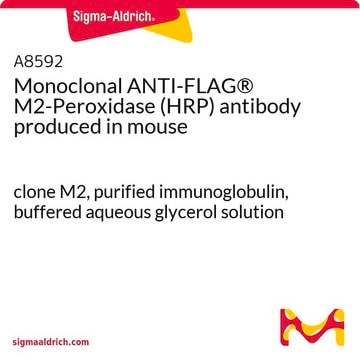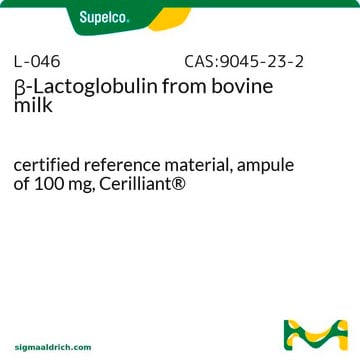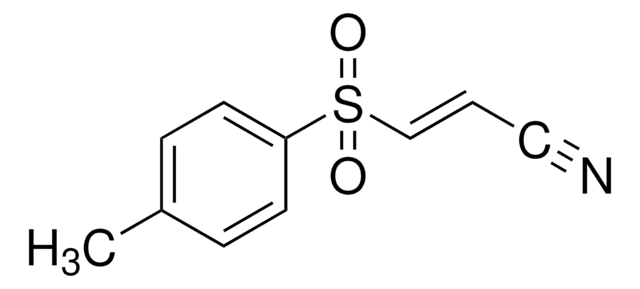L4894
Lactoferrin from human milk
powder, BioReagent, suitable for cell culture
About This Item
Recommended Products
product line
BioReagent
Quality Level
Assay
≥85% (SDS-PAGE)
form
powder
mol wt
82.4 kDa
technique(s)
cell culture | mammalian: suitable
color
white to light red
solubility
PBS, pH 7.4: 1 mg/mL, clear to slightly hazy (0.01 M phosphate buffer, 0.0027 M potassium chloride and 0.137 M sodium chloride, pH 7.4, at 25 °C)
UniProt accession no.
shipped in
ambient
storage temp.
2-8°C
InChI
1S/C35H53N9O12/c1-16(2)27(43-33(53)23(14-26(47)48)41-25(46)15-38-29(49)18(5)39-31(51)21(36)13-24(37)45)34(54)40-19(6)30(50)42-22(12-20-10-8-7-9-11-20)32(52)44-28(17(3)4)35(55)56/h7-11,16-19,21-23,27-28H,12-15,36H2,1-6H3,(H2,37,45)(H,38,49)(H,39,51)(H,40,54)(H,41,46)(H,42,50)(H,43,53)(H,44,52)(H,47,48)(H,55,56)/t18-,19-,21-,22-,23-,27-,28-/m0/s1
InChI key
QCBUWCQOKPLTDZ-PKRULZLPSA-N
Gene Information
human ... LTF(4057)
Looking for similar products? Visit Product Comparison Guide
General description
Application
- to test its neuroprotective effect on neuroblastoma cells and mouse mesencephalic dopaminergic cell lines MN9D
- to test its antioxidative effect in Edible Bird′s Nest (EBN) induced toxicity in human neuroblastoma SH-SY5Y cells using oxygen radical absorbance capacity (ORAC) assay and 3-(4,5-dimethylthiazol-2-yl)-2,5-diphenyltetrazolium bromide (MTT) assay
- in the preparation of immobilized titanium substrate for testingMG-63 osteoblast activity
- as a low-density lipoprotein (LDL) receptor-related protein (LRP1) ligand in vascular smooth muscle cells (VSMC)
Biochem/physiol Actions
Storage Class Code
11 - Combustible Solids
WGK
WGK 3
Flash Point(F)
Not applicable
Flash Point(C)
Not applicable
Certificates of Analysis (COA)
Search for Certificates of Analysis (COA) by entering the products Lot/Batch Number. Lot and Batch Numbers can be found on a product’s label following the words ‘Lot’ or ‘Batch’.
Already Own This Product?
Find documentation for the products that you have recently purchased in the Document Library.
Customers Also Viewed
Our team of scientists has experience in all areas of research including Life Science, Material Science, Chemical Synthesis, Chromatography, Analytical and many others.
Contact Technical Service













